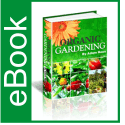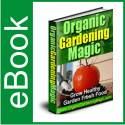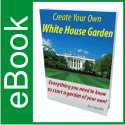Starting an Organic Vegetable Garden
Starting an Organic Vegetable Garden
Article by Bee Roberts
Organic gardening is very famous in this day and age. Organic gardening is growing abundant, ecological, healthy and nourishing vegetables. Starting your organic garden at the appropriate location is a good start. You need to consider the sun, terrain, wind, and the access to water, compost and tools. Choose a location with the best sunlight as possible – from 6 to 8 hours. If your location is not accessible to sun exposure, choose vegetables that grow even without sun. Terrain issues also matters like sun and water access. Consider, too, the wind in the area. Position your garden where there is no strong wind. Putting trellis can reduce strong winds that can destroy your vegetables. Situate your organic garden in the best place as possible to get the greatest benefit.
Soil is also necessary in planning for your organic garden. Test your soil by collecting samples. This will tell you how much nutrients are there in your soil or what is the type of your soil and how to improve it. Perform a do-it-yourself soil test to get information about your soil like pH level, nutrient content, and drain capacity. Start with plants and seeds that are organically grown. Organic plants and seeds do not have pesticides and chemicals unlike the traditional plants. Garden stores and nurseries are now selling organic grown seeds. After planting an organic seed, prevent your garden from catching pests and other diseases. Pay attention to your garden to produce healthy vegetables.
If you want to grow an organic garden, you’re far better in producing great crops than traditional gardener. One more advantage is that organic gardening is more budget friendly that ordinary garden. This is because you will use less fertilizer, pesticides and herbicides and they can be very expensive when used over and over again.
Organic gardeners also use less water. These alone will make you want organic gardening for your garden. Aside from saving money from your garden, organic gardening can also make you a frugal gardener. Some tips are the following:
Keep grass clippings, food scraps, corrugated cardboard, newspaper, and fallen leaves. These are very useful for your garden. You can use them as compost, make lasagna garden, mulch or for worm bin. It can be useful as well even by keeping them on the ground, it will turn into compost naturally.Reuse. You should think twice before throwing items in the trash can or bin. Reusing items can make them still useful for other purpose. Paper cups or plastic cups can be use as a container when starting to plant a new seed. Lids from foods such as cheese can be use as labels for new plants.Trade your plants and seeds. One of the easiest and cheapest ways to add plants to your garden is to trade your plants with other gardeners. If you have two to three plants of the same type, you might want to trade the one in exchange of a new breed of plants that you don’t have yet. You can also trade with your neighbors and friends. This is not just advantageous but will also create new friendship as well.Buy baby plants. Buying small plants is cheaper than buying big plants in the nurseries and garden shops. It may take some time to grow these plants.Buy out-of-season plants. Plants also have clearance sale and they are cheaper than seasoned plants. You can also get a bargain from purchasing these plants to assure sale on part of the seller. Check if there are signs of pests and damages.
There are 7 best reasons for composting, these are:
Composting is simple. There is not too much time and effort needed for organic composting. Composting is inexpensive. Composting needs a very little investment. It does not make use of fertilizers and pesticides and prevents you from throwing things right away because of recycling.Composting is stylish. Composting is the new trend nowadays when it comes to gardening method.Composting is healthy. Composting gives you a healthy crops and vegetables.Composting is good for the world. Composting minimizes trash and garbage all over the world. Composting is accessible. You can do composting even if you do not have a garden.Composting is clean. It has no pests and smell.About the Author
If you want to start an organic vegetable garden, you should start by getting an organic raised bed. Raised garden beds are perfect for the beginning gardener.
Use and distribution of this article is subject to our Publisher Guidelines
whereby the original author’s information and copyright must be included.

 June 26, 2012
June 26, 2012 







